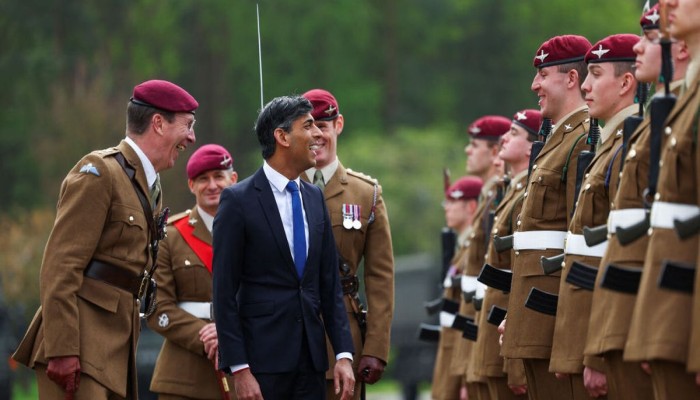
UK Conservatives Want To Bring Back Mandatory Military Service
European Desk , Published: May 26, 2024, 6:05 pm

The UK Conservative Party has announced a plan to reintroduce twelve months of mandatory national service if they win the upcoming general election. This initiative targets 18-year-olds, offering them a choice between 30,000 full-time military placements or weekend community service volunteering.
Prime Minister Rishi Sunak supports this proposal, stating that it aims to cultivate a “national spirit” akin to the community solidarity observed during the COVID-19 pandemic. The program is designed to instill a sense of duty and camaraderie among young people, while also providing them with valuable skills and experiences that can benefit their future careers and personal development.
Critics of mandatory national service often argue about the potential for infringing on personal freedoms and the effectiveness of such programs. However, proponents believe it can help address societal issues such as youth unemployment and lack of community engagement.
The Conservative Party's proposal will likely spark significant debate in the lead-up to the general election, as it touches on themes of national identity, civic responsibility, and the role of the military in society.The UK Conservative Party's plan to reintroduce twelve months of mandatory national service, if they win the general election, has stirred significant controversy, particularly regarding its estimated £2.5 billion cost. Labour has criticized the initiative as “desperate” and “unfunded,” arguing that it is reminiscent of David Cameron’s “Big Society” initiative and pointing to the Conservatives’ history of economic mismanagement and reductions in armed forces’ numbers.
Prime Minister Rishi Sunak supports the plan, emphasizing its potential to foster a “national spirit” similar to the solidarity seen during the COVID-19 pandemic. The program, slated for a pilot launch in September 2025, will be detailed by a Royal Commission. It offers 18-year-olds a choice between 30,000 full-time military placements focusing on cyber security, logistics, procurement, and civil response, and weekend community service volunteering involving 25 days with services such as the fire department, police, and NHS.
Sunak argues that the national service will provide young people with valuable work experience and real-world skills, steering those at risk of unemployment or crime towards positive societal contributions. The funding is planned to come from the UK’s Shared Prosperity Fund and measures against tax avoidance.
Critics, including the Labour Party and Liberal Democrats, have raised concerns about the plan’s feasibility and impact on the professional military force. Labour accuses the Conservatives of reducing armed forces’ numbers while proposing new military roles, and the Liberal Democrats stress the importance of reversing these cuts to maintain a robust professional military.
The plan revisits the concept of national service, which was introduced in the UK post-World War II and ended in 1960. While the idea of conscription remains contentious, it is still in practice in several European countries, suggesting a potential model for the UK to follow if the plan proceeds.